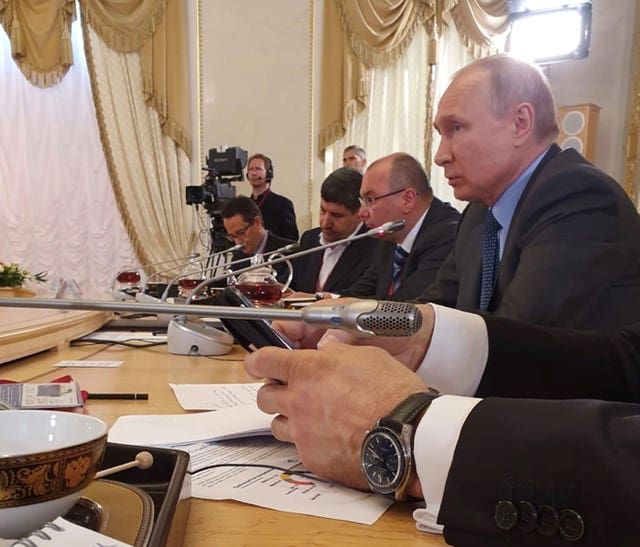Key findings from the Intelligence and Security Committee’s Russia report
The report was released after months of delay.

A report by Parliament’s Intelligence and Security Committee (ISC) on Russia’s activities in the UK has been released after months of delay.
Here are some of its key findings and arguments:
– Russian influence in the UK is the ‘new normal’
ISC members said there were many Russians with “very close links” to President Vladimir Putin who are “well integrated into the UK business and social scene”.
They warned that building links with Russian companies and “welcoming oligarchs with open arms” had been “counter-productive” and led to “illicit finance” flowing through London – dubbed a money “laundromat” and “Londongrad”.

– Russia represents an ‘established threat’
The UK was described as one of Russia’s “top Western intelligence targets” for “disinformation campaigns and political influence operations” in the ISC report.
It argued that the murder of Alexander Litvinenko in 2006 showed that Russia had moved from “potential partner to established threat” under Mr Putin.

– UK Government ‘playing catch-up’
The UK Government has “badly underestimated” the response needed to the threat from Russia and is still “playing catch-up”, the ISC warned.
It claimed responsibility for defending the UK’s democratic processes from interference is being treated like a “hot potato” by organisations in the country’s wider intelligence community.
The committee suggested the British intelligence community “took their eye off the ball” over the threat from Russia, something it said the heads of security agencies defended their organisations against.
The ISC called for “greater cohesion” among agencies and organisations and a simplification of “the unnecessarily complicated wiring diagrams that do not provide the clear lines of accountability”.
– Lack of retrospective assessment on potential political interference
The committee found there had been “credible open source commentary” suggesting Russia tried to influence the Scottish independence referendum in 2014.

Committee members said they had not received any post-EU referendum assessment of Russian attempts at interference, highlighting it was in “stark contrast” to the US handling of allegations of Russian interference in the 2016 presidential election.
The ISC said the Government had been “slow to recognise the existence of the threat” from Russia.
It called for a UK assessment to be carried out into potential Russian interference in the EU referendum.
The ISC said the UK’s paper-based voting system is “largely sound” and makes “significant interference difficult”, but it should not be “complacent” about other interference.
– House of Lords links to Russia need scrutiny

– Social media businesses should face ‘name and shame’ threat
The ISC argued that the Government should “name and shame” social media companies who fail to show “they take covert hostile state use of their platforms seriously” and outline timescales for removing such material.
It argued they were “failing to play their part”.
– New legislation and international consensus needed
The ISC said new laws were needed to give the UK’s intelligence community the “tools” it needed to “tackle espionage, the illicit financial dealings of the Russian elite and the ‘enablers’ who support this activity”.
It also called on the UK’s international allies to reach a “consensus” on “Russian aggressive action” to find the best way to “attach a cost to Putin’s actions”, as the UK sought to do in response to the Salisbury Novichok poisoning in 2018.





